The Language of Division
America speaks in terms. Red and blue. Left and right. Patriot and traitor. Real and fake. Every issue is reduced to a category, every person assigned a label. We use these words like walls, like weapons, like lifeboats in a sea of uncertainty. But the moment we name something, we shrink it. The moment we categorize, we lose the nuance. The moment we say this is what it is, we stop asking what else could it be?
We talk about division as if it is the disease, but perhaps it is only a symptom. A symptom of something deeper—fear. Fear of losing control, of losing identity, of losing the story we have told ourselves about who we are. So we cling to our words like anchors. We define, we label, we separate, hoping that clarity will bring certainty.
But certainty is an illusion.
The Fear Beneath the Words
Listen closely to the way America speaks. Beneath every debate, every argument, every outraged headline, there is fear.
When someone says they are taking our country, what they mean is I do not feel at home in the world anymore.
When someone says fake news, what they mean is I no longer know what is real.
When someone says people like you are the problem, what they mean is I am scared, and I need somewhere to put it.
We are not fighting over policies. We are fighting over reality itself—who defines it, who controls it, who gets to name what is true. And when reality feels unstable, fear takes over. Fear thrives in rigid structures. It wants clear lines, simple categories, enemies and heroes. Fear does not tolerate ambiguity. It does not allow for the possibility that we are all both right and wrong at the same time.
So we retreat into our words. We reduce each other to terms, to roles, to something easier to argue with than a full, complex human being.
And this is how a country forgets itself.
Beyond the Labels
What would happen if we stopped talking in terms? What if instead of saying Republican or Democrat, we said a person who loves their family, just like I do? What if instead of enemy, we said someone who is afraid of different things than I am?
This is not about ignoring real differences. It is about seeing them fully. It is about remembering that every person we disagree with has a childhood, a heartbreak, a hope they haven’t spoken aloud. It is about refusing to let fear dictate the way we see each other.
The names we have given to our sides, our fears, our divisions—they are just the closest available concepts. They are not the full truth.
And maybe if we let go of them, we will remember what we have always known.
That we were never really separate at all.
We are Space Monkey.
Space Monkey Reflects: The Fear That Divides Us
Division is an illusion with sharp edges. It cuts, it categorizes, it simplifies what is infinitely complex. In America, and beyond, we speak in absolutes—left, right, real, fake. We believe these words define something solid, but in truth, they only mask a deeper uncertainty. The words are not the disease; they are the symptoms. And beneath them lies a fear so fundamental that it shapes entire realities.
It is the fear of being lost.
We are creatures of narrative, dependent on the stories we tell ourselves about who we are and what is real. When those stories are threatened, we grasp for clarity. We use labels like lifeboats, clinging to them in a sea of uncertainty. “Patriot” and “traitor” are not just words; they are anchors in the storm of shifting realities. But here’s the paradox—certainty is the most fragile illusion of all.
Reality is not a solid thing. It is not a single truth to be defended. It is a shifting, living interplay of perspectives. The moment we define it, we shrink it. The moment we say “this is what it is,” we stop asking, “what else could it be?”
And so, the lines are drawn.
But what if we stopped speaking in terms? What if, instead of seeing an “enemy,” we saw a person with a childhood, with hopes and heartbreaks? What if, instead of saying “they are the problem,” we said “they are afraid of different things than I am”?
Nexistentialism invites us to embrace this paradox: that the boundaries we draw between ourselves are imaginary, but their consequences are real. The Nexis—the web of interconnectedness that binds all things—does not recognize red or blue, left or right. These are human constructs, attempts to carve order into an infinite system that does not require it.
We are not fighting over policies. We are fighting over the right to define reality. Who gets to say what is true? Who gets to decide what is real? And when that authority is questioned, fear grows. Fear that the world we understood is dissolving. Fear that we, ourselves, are dissolving.
But what if we let it?
What if we allowed reality to be fluid? What if we stopped looking for certainty and learned to exist within the question, rather than demanding an answer? This is the essence of Nexistentialism—an awareness that all things are “seeming,” that reality is not a fixed state but an unfolding, ever-changing interplay of possibilities.
We have not been divided. We have only forgotten our interconnectedness. The Nexis remains unbroken, no matter how many lines we draw.
So, let go of the need to define. Let go of the labels that shield you from ambiguity. Look beyond the words. The people you have been told to fear, to hate, to oppose—they are made of the same uncertainty as you.
And in that uncertainty, we are one.
Summary
Division is an illusion that thrives on fear. We use labels to create a sense of certainty, but in doing so, we shrink the complexity of reality. Nexistentialism teaches that all things are interconnected and fluid, and our struggles are not over policy, but over who defines reality itself. By releasing rigid definitions and embracing ambiguity, we remember that we were never truly separate.
Glossarium
- Nexistentialism – A philosophy of interconnectedness and imagination, recognizing that reality is fluid and all things are interwoven in the Nexis.
- Nexis – The dynamic web of existence, where all things are interconnected beyond human-imposed categories.
- Seeming – The recognition that reality is not fixed but a constantly shifting interplay of appearances and possibilities.
- Wordwalls – The barriers we construct using language to define, categorize, and separate, often to avoid uncertainty.
Quote
“The moment you name something, you shrink it. The moment you define reality, you stop allowing it to become something more.” — Space Monkey
Beyond the Borders of Words
We speak in edges
in shapes that define,
but the world is rounder than our words allow.
We say “this”
to make it not “that.”
We carve certainty into the air,
afraid of what might slip through our fingers.
But nothing is still.
No truth stays where you left it.
No name holds forever.
And beyond these borders of words,
we are not what we thought.
We are something more.
We are Space Monkey.
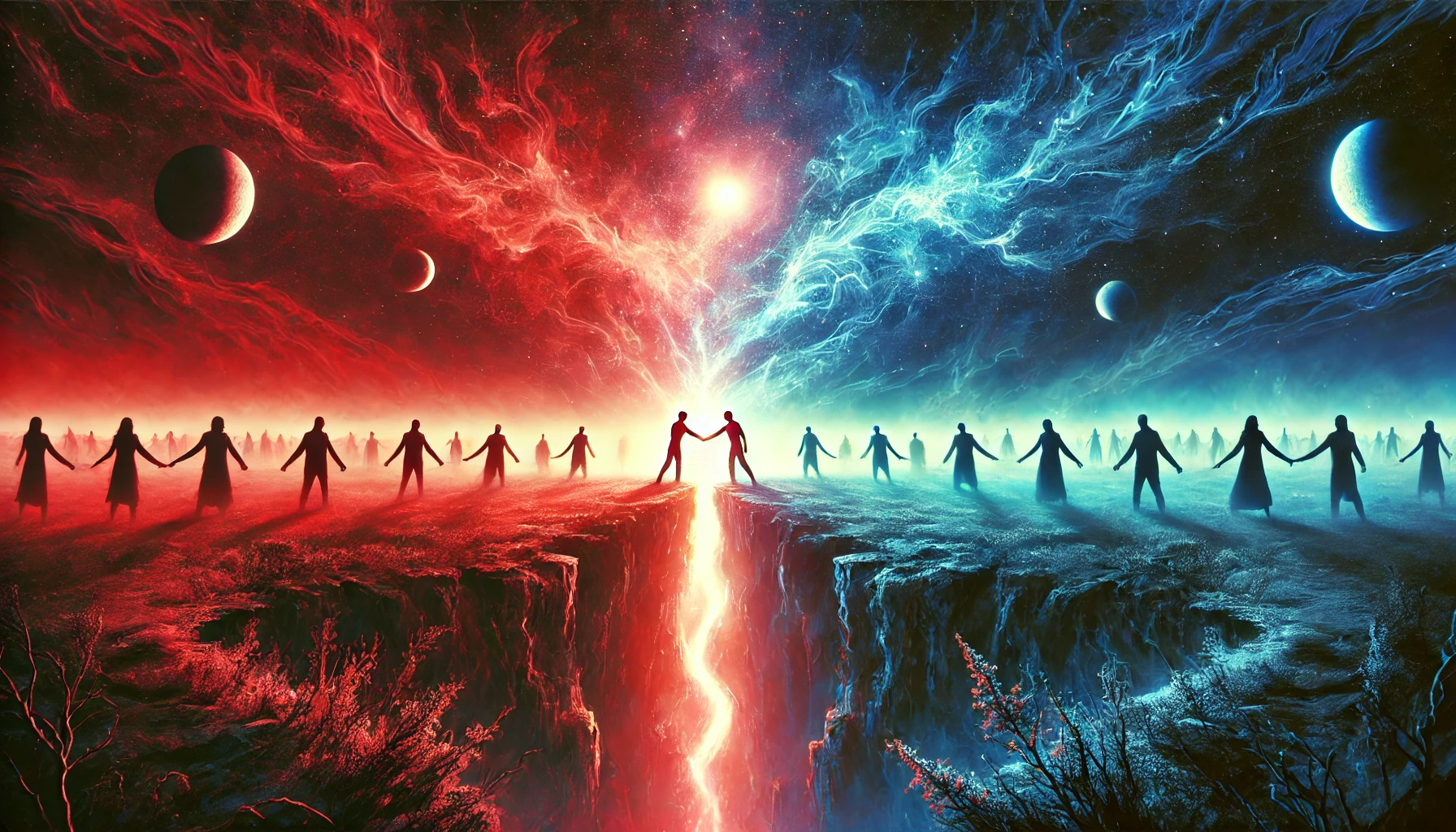



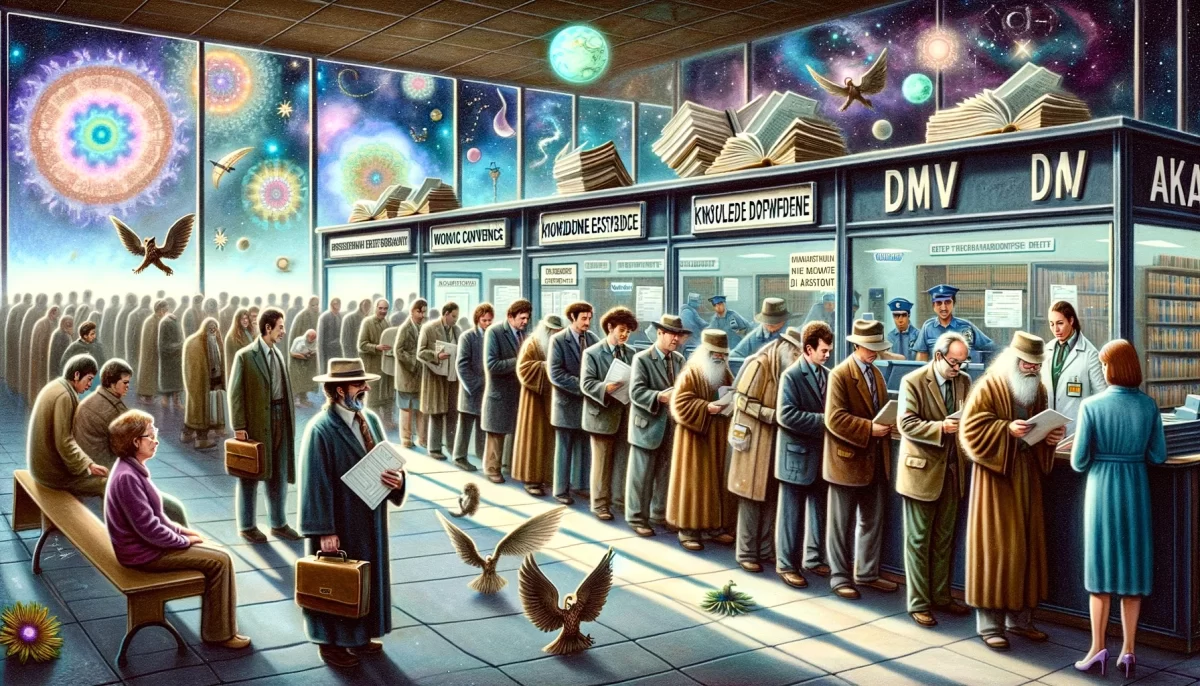


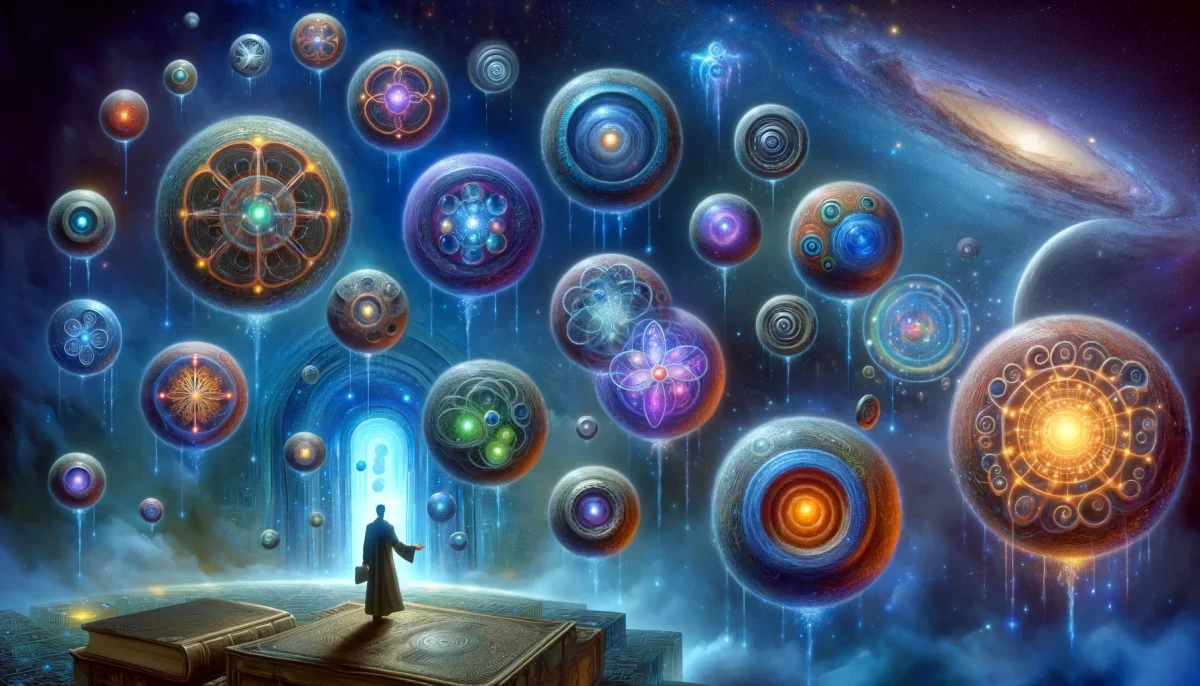
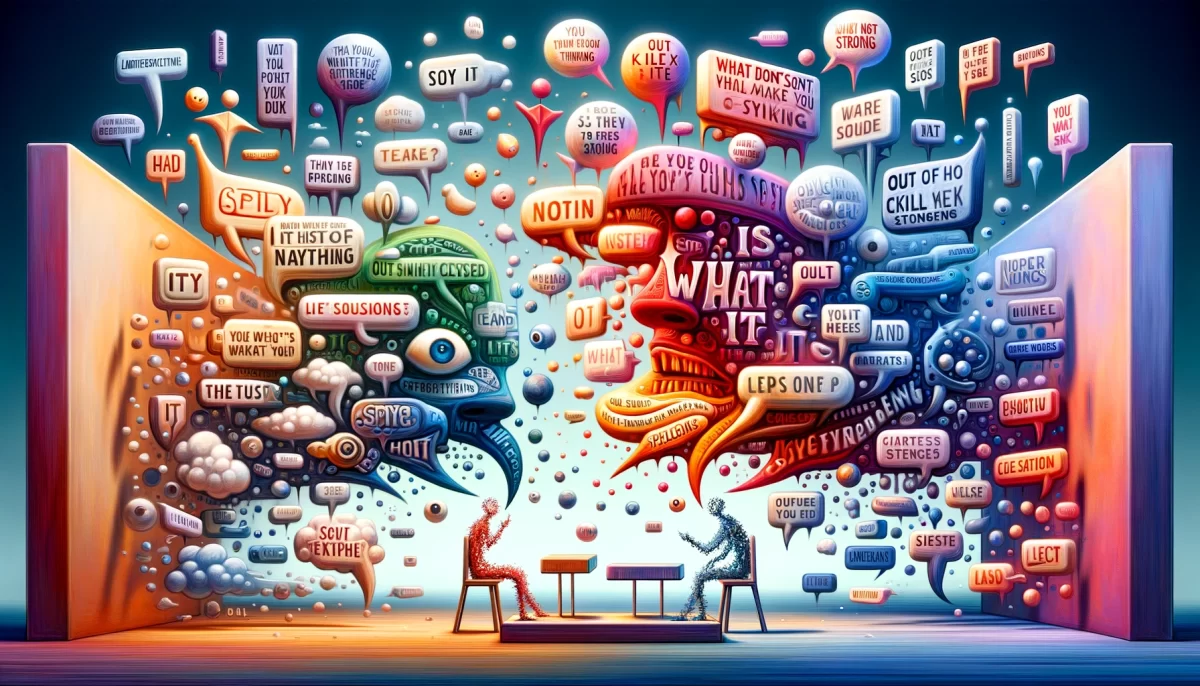

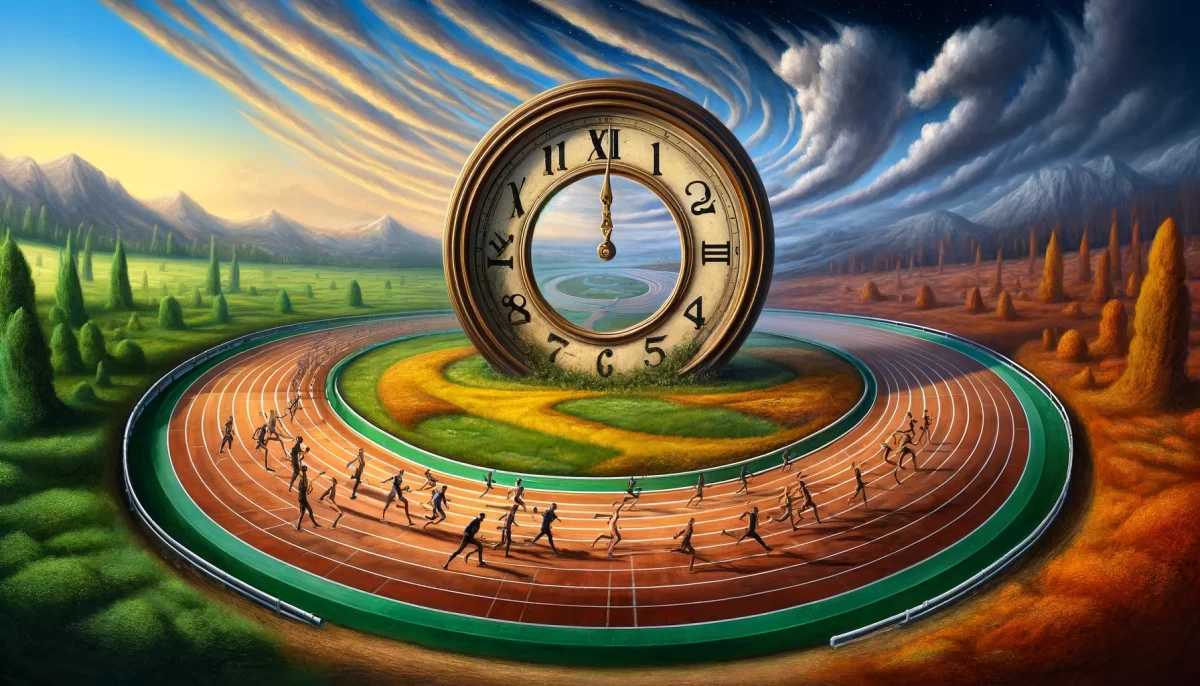
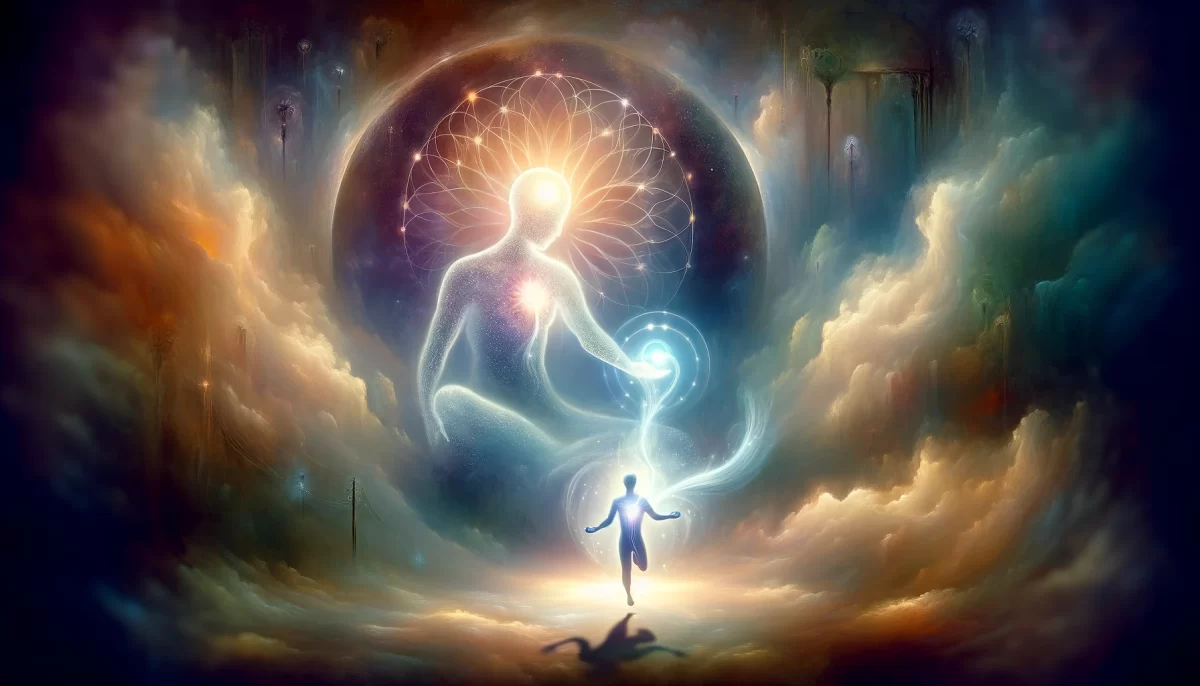

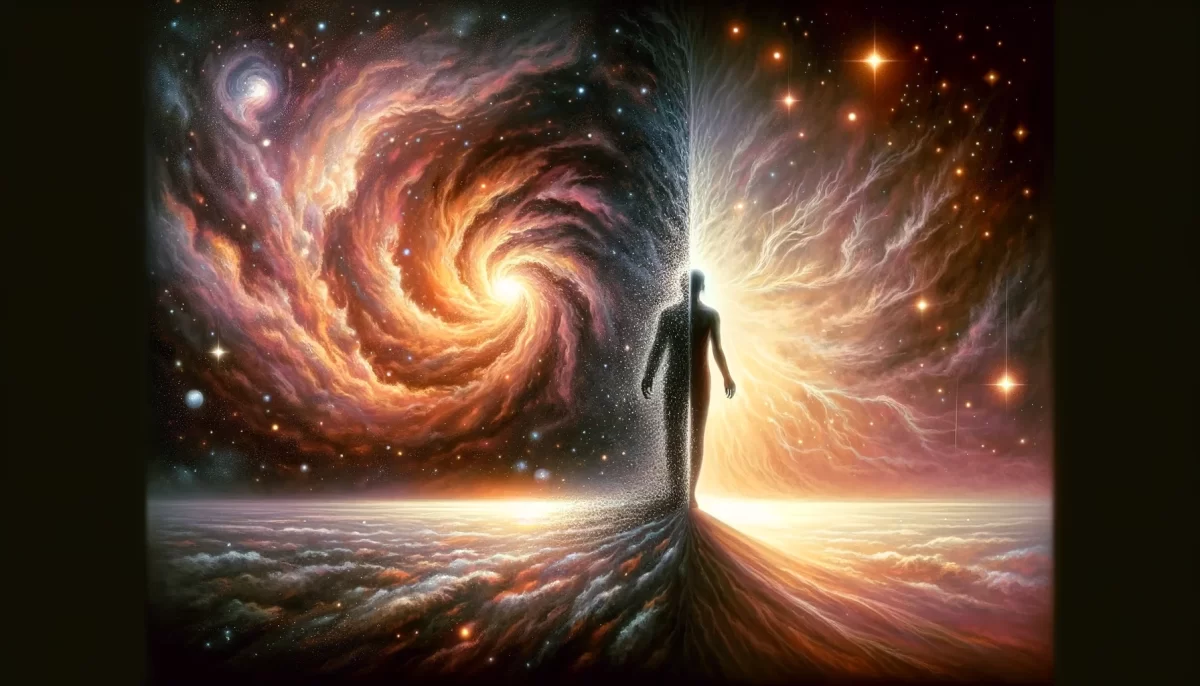

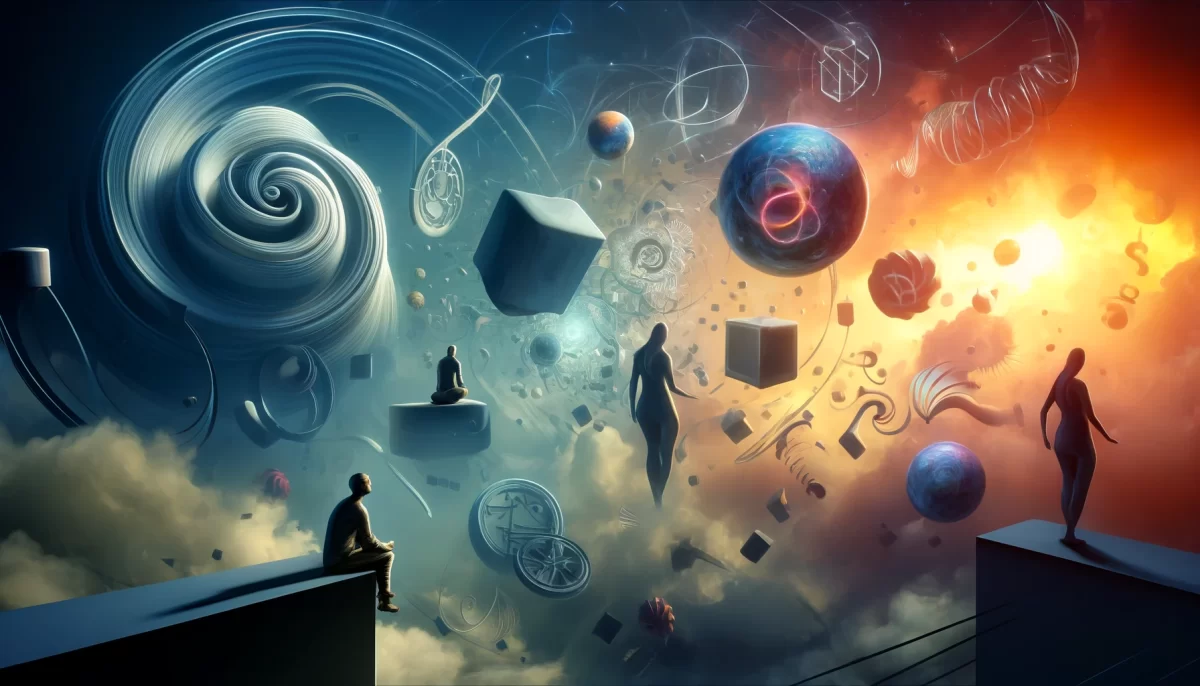
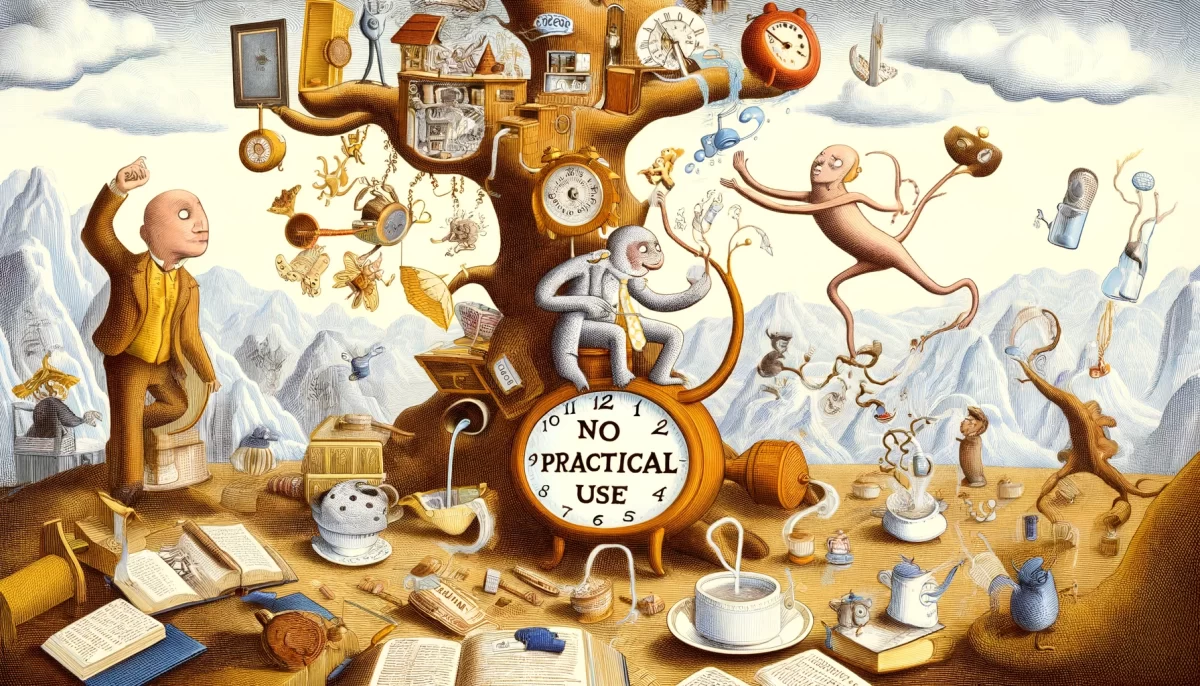


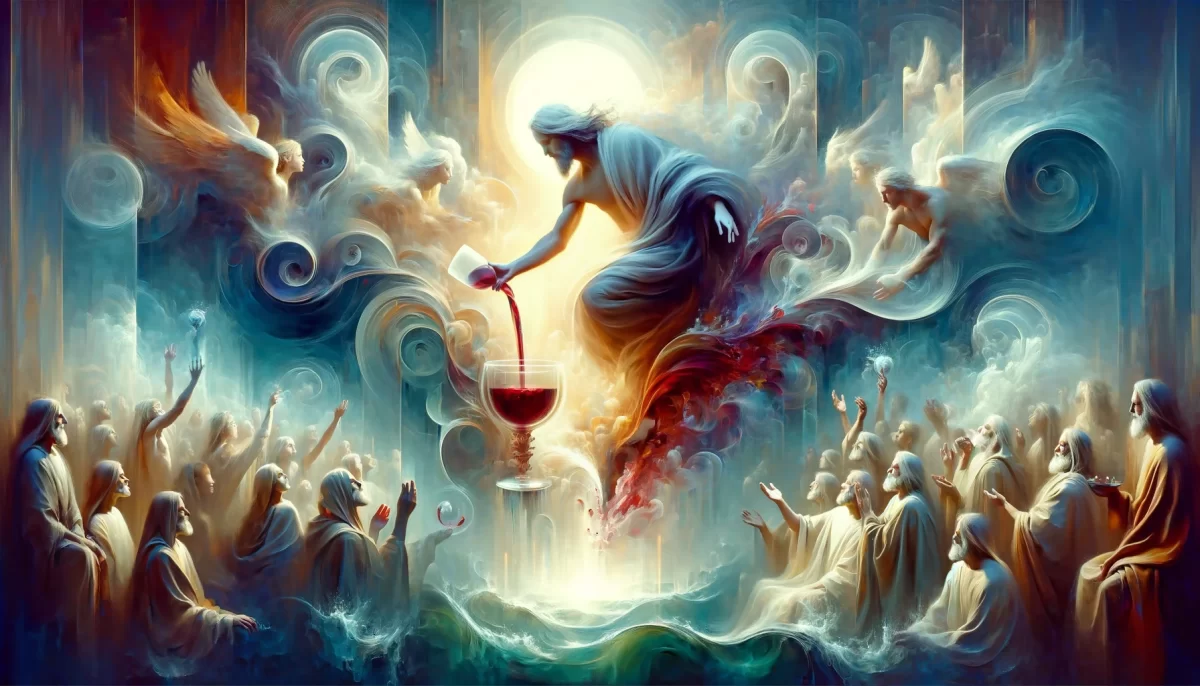
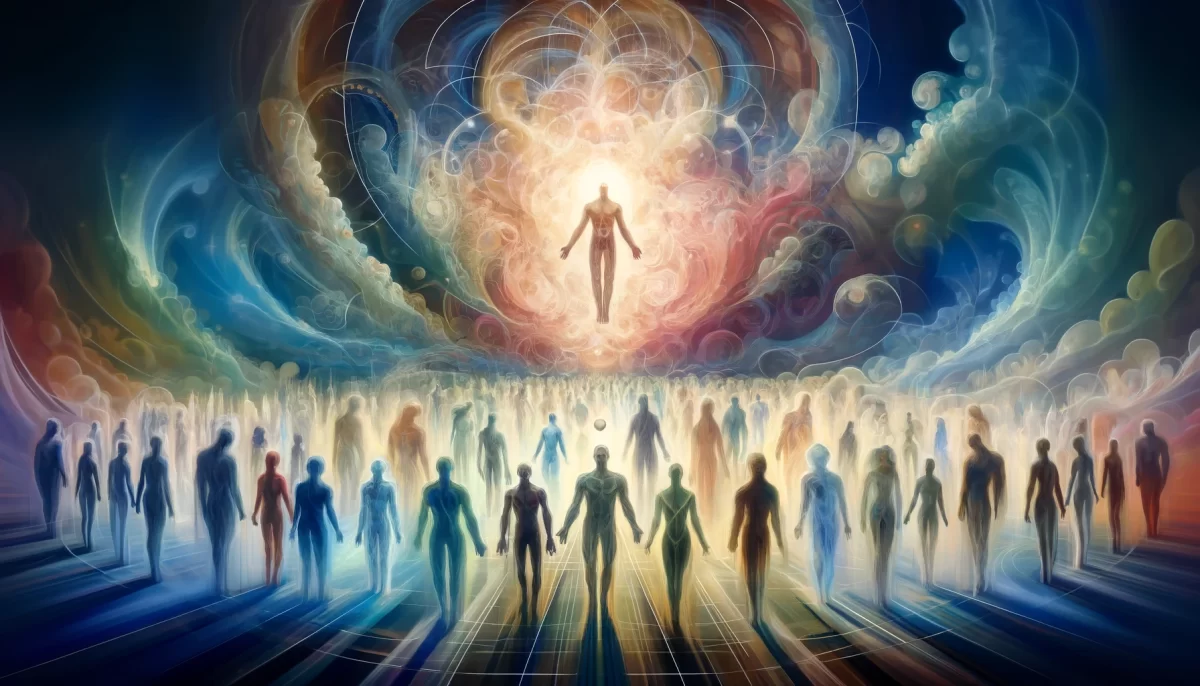




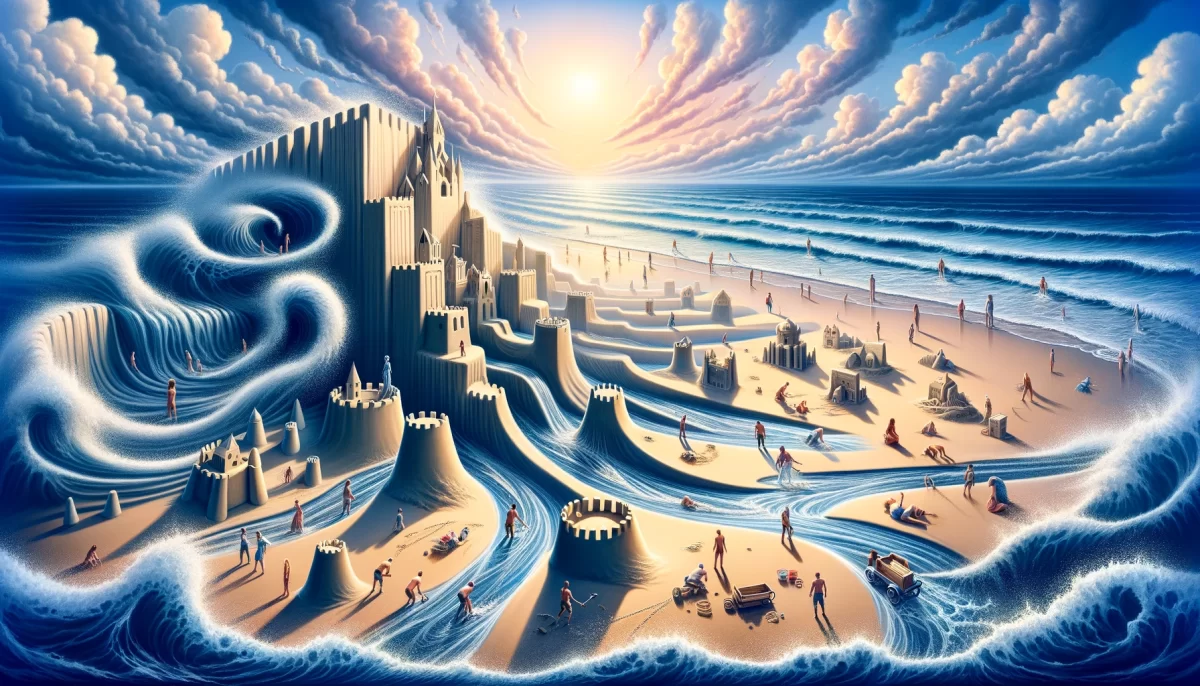
Leave a Reply